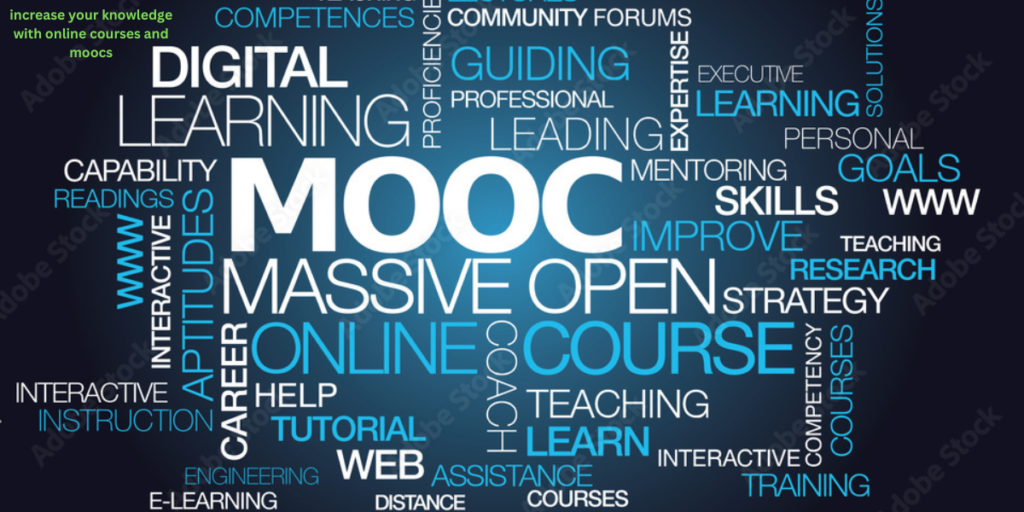Online Courses and MOOCs

The Evolution of Online Courses and MOOCs
In the digital era, education has undergone a transformative shift, transcending traditional boundaries to reach learners worldwide. Online courses and Massive Open Online Courses (MOOCs) have emerged as dynamic platforms, democratizing access to knowledge and revolutionizing the way individuals engage with learning. This paradigm shift has not only widened the educational landscape but has also fostered a culture of continuous learning, making education accessible to diverse audiences across the globe.
The Rise of Online Learning:
Online courses, often delivered through platforms like Coursera, Udacity, and edX, have become a cornerstone of modern education. These courses cover a vast array of subjects, from technical skills and humanities to business and science. The appeal of online learning lies in its flexibility, allowing individuals to pursue education at their own pace, regardless of geographical location or time constraints.
MOOCs: Transforming Education on a Massive Scale:
Massive Open Online Courses, or MOOCs, represent a seismic shift in education delivery. These courses, offered by prestigious institutions globally, are designed to accommodate a large number of participants simultaneously. MOOCs leverage the power of the internet to deliver high-quality educational content, often free of charge, to anyone with an internet connection.
Key Features of Online Courses and MOOCs:
Accessibility: Online courses and MOOCs break down barriers to education. Learners from any corner of the world can access courses from renowned institutions without the need for relocation.
Flexibility: The asynchronous nature of online learning allows learners to set their own study schedules. This flexibility is particularly advantageous for working professionals or individuals with busy lifestyles.
Diverse Course Offerings: From coding and data science to philosophy and literature, online courses and MOOCs cover an extensive range of subjects. Learners can explore diverse fields of study, tailoring their educational journey to their interests and career goals.
Interactivity and Engagement: Many platforms incorporate interactive elements such as quizzes, forums, and peer assessments, fostering engagement and collaboration among learners. This dynamic approach enhances the learning experience.
Self-Paced Learning: Online courses allow learners to progress through content at their own pace. This self-directed learning model accommodates different learning styles and ensures a personalized educational experience.
Global Community: MOOCs, in particular, create a global learning community. Participants from various backgrounds and cultures bring unique perspectives to discussions, enriching the learning experience with diverse insights.
Cost-Effective Learning: While some platforms offer courses for free, the costs associated with online learning are generally more affordable than traditional education. This affordability contributes to the democratization of education.
Challenges and Opportunities:
Despite the numerous advantages, online courses and MOOCs face challenges such as maintaining high completion rates, ensuring course quality, and addressing issues of inclusivity. However, ongoing improvements in technology, pedagogy, and platform design continue to enhance the effectiveness of these learning models.
The Future of Learning:
The evolution of online courses and MOOCs is indicative of a broader shift toward a lifelong learning paradigm. As the job market evolves, continuous upskilling and reskilling become essential. Online learning platforms empower individuals to adapt to these changes, providing a continuous educational journey that spans a lifetime.
Conclusion:
Online courses and MOOCs stand as beacons of innovation in the educational landscape, embodying the democratization of knowledge. As technology continues to advance, these platforms will likely play an even more significant role in shaping the future of education. The empowerment of learners, the flexibility of study options, and the global exchange of ideas demonstrate the transformative potential of online learning. In a world hungry for knowledge, online courses and MOOCs open doors to education, ensuring that learning is no longer confined to the walls of traditional classrooms but is accessible to all who seek it.